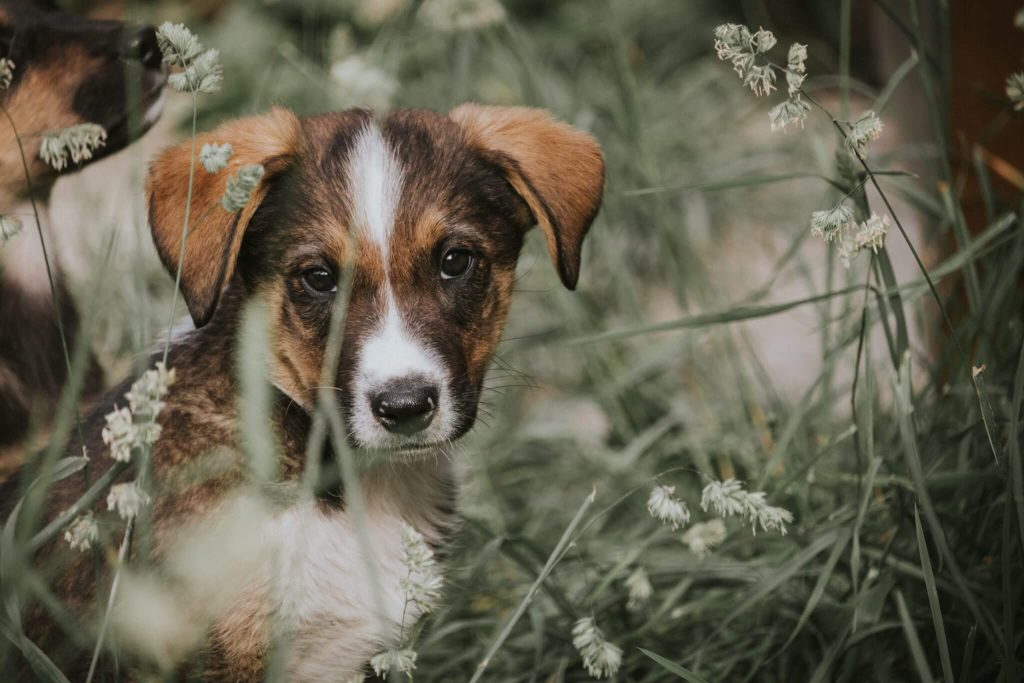Why We Should Worry About Worms

Dog guardians understand what a dog dragging their bum across the floor means. Worms. We know the importance of regular deworming, but why should we worry about worms? We take a look at the different types of worms, and whether they really are a danger to our dogs.
Heartworm
These nasty parasites are spread through mosquitoes that have feasted on the blood of dog infected with heartworm. The mosquito will then deposit larvae within the blood into subsequent dogs they draw blood from. Mature heartworms reside inside the heart of a dog, and continue to reproduce. Eventually, the worms form a lethal worm bolus in the heart, causing caval syndrome. Valve function becomes compromised, leading to heart failure. Heartworms can affect a dog’s lungs as well as the heart.
Lower exposure makes indoor and purpose-bred dogs less likely to contract heartworm. Dogs residing in areas where mosquitoes are less prevalent may also dodge an infected mozzie bite.
In the earlier stages, a dog with heartworm may be asymptomatic making detection difficult. As the worms continue to grow and invade the heart, a dog will develop shortness of breath or coughing. Lethargy and weight loss will likely follow as the cluster grows. Anaemia and renal dysfunction occur in severe infestation.
Regular deworming is a must. Obvious symptoms may mean infestation is at an advanced stage.
Intestinal Worms — Hookworm, Roundworm, Tapeworm, Whipworm
Intestinal worms are highly contagious, primarily via the stool of an infested dog. The biggest take-home is to clean up after your dog. Intestinal worm larvae can survive in a stool for months, even years. Some worm larvae are weather resistant. Surrounding soil and other animals become infected. The prolific spread of intestinal worms increasingly harder to fight, and evermore widespread. It’s the crummy reality our precious pups face.
Hookworms are a type of intestinal worms. These internal blood suckers attach themselves to the intestinal wall with their hook-like mouth. The larvae of hookworms survive for months in the stool of an infected dog, and in surrounding soil. A dog contracts hookworm by eating infected faeces. Dogs ingest larvae when they tread or lay down on larvae infested ground. They later scratch their fur and lick their paws. Dogs can even inhale larvae and become infected. A mother dogs transmits hookworm to her puppies, in utero or through her milk.
Symptoms include anaemia, weight loss or slow growth and bloody stools.
Roundworms are highly contagious. Like hookworm, they are transmitted through the poo of an infected dog, which can spread to surrounding soil. Puppies pick up roundworm from their mothers.
Roundworms live and feed on partially digested food in the intestine, steeling nutrients from a dog’s diet. Infected puppies are malnourished with slow growth. Other symptoms of roundworm are fatigue and the typical potbelly. Diarrhoea and vomiting are other symptoms, in which worms may be visible in severe cases.
Like hookworms, tapeworms attach themselves onto the intestinal wall. Tapeworms are responsible for the bum scoot, giving dogs a horribly itchy rear end. Tapeworms periodically shed their last segment, which looks like a grain of rice, and contains eggs. These segments are pood out, can survive for months and are weather resistant. Fleas spread tapeworm – another good reason to treat for fleas.
In humans, tapeworms can cause hydatid disease, where a cyst forms in vital organs, holding 30-40 tapeworm heads. Prevention through good hygiene is essential. It’s another reason to wash hands before eating, and after gardening and handling animals.
Whipworms live in a dog’s large intestine and colon. Dogs become infected by passively ingesting infested soil, food, water, faeces or other small animals. Whipworm eggs are microscopic, weather resistant, and can survive for up to five years. Whipworms are difficult to detect, but symptoms may include weight loss and diarrhoea.
Without a doubt, prevention is better than cure. Deworming must form part of a dog guardian’s routine. Promptly clean up dog poo prevents worm infestation in the ground. Follow your veterinarian’s advice on deworming and protecting your dog from other pests. Worms in a dog can be more serious than an itchy bum and wriggly stools. They can have devastating effects on our dogs and impact their quality of life. Read 14 Common Household Hazards to protect your dog at home.

